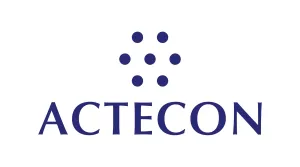The Turkish Competition Authority ("TCA") had found that six cement producers operating in the Aegean Region of Turkey entered into a concerted practice to allocate certain geographical regions amongst themselves and to collectively raise the prices of cement products during the time period starting from January-March 2013 and ending in October-December 20141.
The relevant decision of the TCA was significant because the TCA was not able to find evidence of any contact between the said undertakings with respect to market allocation or collective price increase and relied on economic data. The TCA mainly compared the market structure in the said period with the preceding and succeeding periods and concluded that the market structure was similar to those markets where competition is restricted. The TCA claimed that the economic evidence was sufficient to trigger the "presumption of concerted practice" which shifts the burden of proof to the investigated parties as per the Act no. 4054 on the Protection of Competition. Once the burden of proof is shifted, the parties must rebut the presumption of concerted practice by showing that the alleged unusual market conditions were stemming from external factors such as an increase in demand or in the costs of raw materials.
The investigated parties submitted various defenses in order to show that the market conditions in the period subject to investigation were a result of natural market forces rather than their anti-competitive behaviors. GOLTAS Cement, which was one of the investigated parties and was represented by ACTECON, along with some other legal and economic arguments, set forth that its price increase of 42% in the relevant period was much below compared to the price increases of competitors and also justified by the 28% increase in its costs and the 29% increase in demand. Yet, the TCA rejected that defense merely by claiming that these may not be regarded as reasonable justifications in the case at hand.
GOLTAS Cement, represented by ACTECON's partner Bahadir BALKI, appealed the decision and on 2 February 2018, the 10th Administrative Court of Ankara annulled the imposition of an administrative fine of TRY 14.5 million (approximately USD 4 million and EUR 3.5 million) on GOLTAS Cement based on the premise that GOLTAS Cement did indeed rebut the presumption of concerted practice. The 10th Administrative Court pointed out that the 42% increase in GOLTAS Cement's prices were far below the market average of 83% and that the 14% difference between the 28% increase in the costs of GOLTAS Cement and its price increase was justified by the 29% increase in demand. The Court held that the TCA may no longer claim the existence of a concerted practice in light of the economic evidence submitted by GOLTAS Cement.
Although the decision of the 10th Administrative Court is not final as it is subject to further judicial review in higher administrative courts, this is a landmark decision that will fundamentally change the way in which the TCA establishes concerted practice. The TCA's approach of amalgamating its claims concerning all the investigated parties rather than conducting individualized economic assessments in concerted practice cases had long been criticized. Yet, this is the first decision where an administrative court annulled an administrative fine on the ground that the required standard of proof was not met.
The implications of this decision are yet to be seen, but it sends a clear message to the TCA that it must separately assess the behaviors of each investigated party by taking into consideration the specific economic circumstances. So far, the administrative courts in Turkey had been reluctant to delve into the issue of standard of proof as well as any other issues concerning the defensive safeguards associated with the general right to a fair trial. This may be a milestone in the judicial review of TCA's decisions in general since this decision is the only one in twenty-year enforcement that administrative courts, considering the essence of the case (mainly the standard of proof), annulled a TCA decision imposing monetary fine. The decision of the 10th Administrative Court may have opened the Pandora's box.
Footnote
1. TCA's Aegean Cement Producers Decision dated 14.01.2016 and numbered 16-02/44-14.
The content of this article is intended to provide a general guide to the subject matter. Specialist advice should be sought about your specific circumstances.



